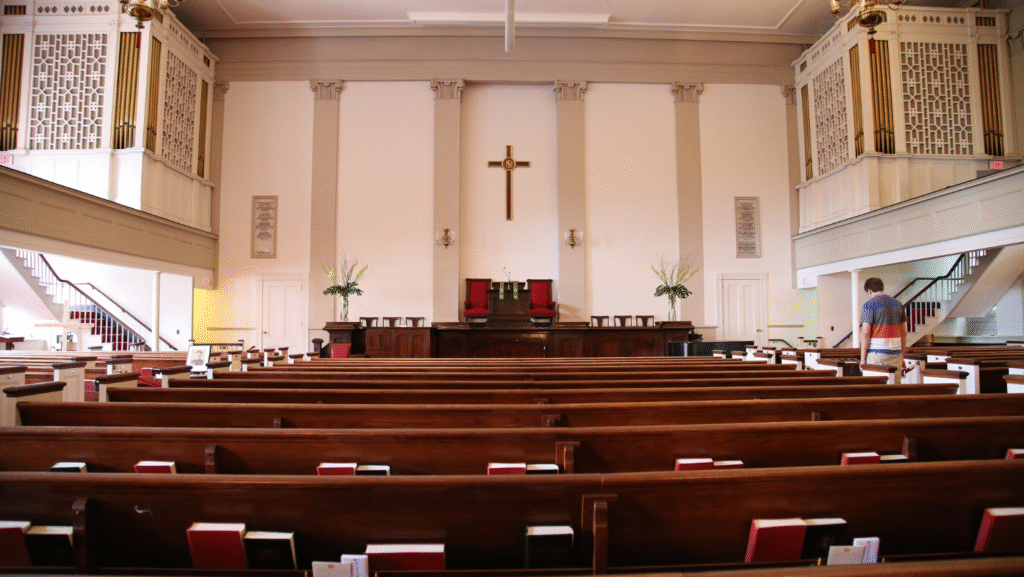Recently I had a conversation with my ministry partner in South Asia about the differences between the church and the mosque.
While most Western Christians do not buy the common trope that “all religions are equal,” it is easy for us to think that what we Christians experience in our churches, Muslims experience in the mosque. For example, in my church there is presently a little boy who has just received a life-saving kidney transplant. However, the first few days after his transplant have been marked by an inexplicable, very high fever that, once again, threatens his health, and even life. Naturally, one might almost say, our church has rallied around this family. Our senior pastor called us all to prayer and fasting for this little boy. Many of us are praying with tears for this little boy. This is what happens in a normal Christian church.
Or, use an example I posed to my ministry partner: Suppose I came to the Imam (the leader of a mosque, the closest equivalent to a pastor) with a difficulty, or family crisis; say, my teenage daughter has become pregnant out of wedlock. What should I do? In a Christian church there would be all around support: counseling for me, my wife, and probably my daughter, even our other children; an attempt to look at the Bible to see what is the wisest choice, all things considered. A call to repentance and faith by my pastor and/or elders. That is what happens in a normal Christian church.
In the country where my ministry partner lives (which is overwhelmingly Muslim), the mosque, and the Imam, do none of those things.
If I am an average Muslim in that country, when I go to prayer, it is to recite 5 or 6 of the 10 or so prayers (in Arabic) that I have memorized. Even though I do not speak Arabic, and do not understand the words I pray, I say them, because it is my duty as a Muslim. I do not go to bring my concerns, or the concerns of those I pray with in the mosque, to my god. The mosque, you see, has no membership the way churches do. What matters is that I go to a mosque for Friday prayers; it does not matter which mosque I go to. Even though we tend to think of Muslim countries as less individualistic than the West, praying, for Muslims, is a very individualistic religious ritual. I might pray for my concerns on my own time, but the prayers that a Muslim is required to give are prayers, from the Quran, in Arabic.
Moreover, the imam at the mosque where I pray probably does not know me. If I bring to him a personal crisis—such as my teenage daughter’s out-of-wedlock pregnancy—the imam is more likely to expel me (and my daughter) from the mosque as to give me any counsel.
I once asked one of our “Timothys” (trainers) who, prior to coming to Christ, had been an imam, this question: if someone in your mosque asked you, “Imam, how can I know that Allah loves me; how can I have any assurance that I am a good enough Muslim?” His answer was this: no one would ever ask that. If they did, I would have considered them a troublemaker. Mosques in this country do not have anything like “pastoral care” that we, as Christians, look to our churches for.
The conversation with my ministry partner came about because one of the attenders at our regular meeting, a pastor at a church, had befriended a refugee from Afghanistan. This man had asked him about life in a church. And even though this pastor had served in a predominantly Muslim country for 20 years, he never consciously realized this major difference between a mosque and a church.
In light of this, think about the evangelistic and apologetic value of the church, as a community where the Bible’s “one another” commands shape the relationships between church members; and where pastoral care flows almost naturally from the Bible’s teaching. Your church, you see, has it all over the mosque. The Triune God has it all over the monolithic god of Islam. The Lord is my “shepherd,” who shepherds me through the church. Our Muslim friends, sadly, are missing out on a whole lot more than they—and we—know.





